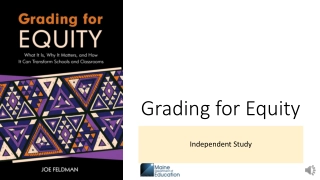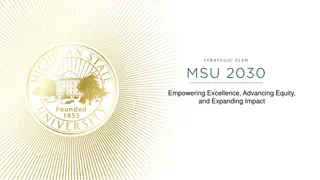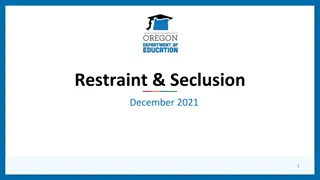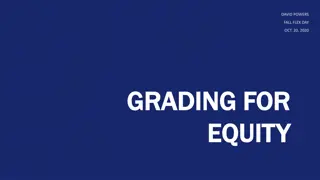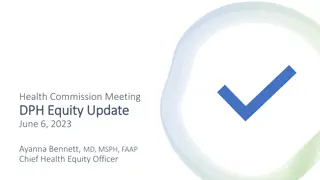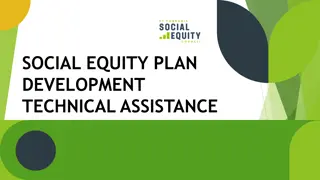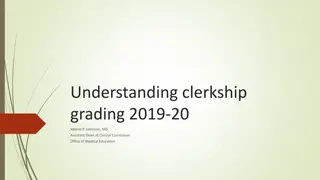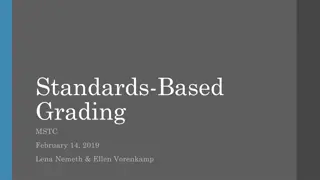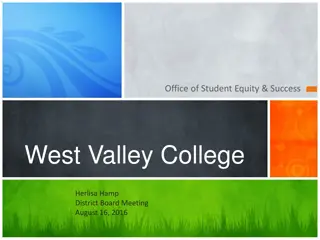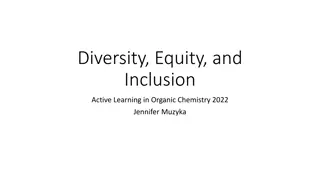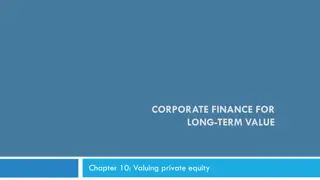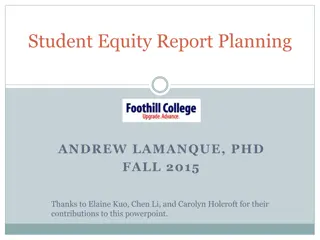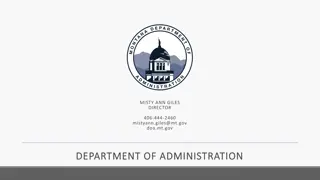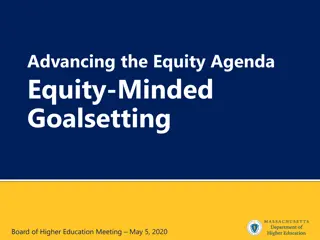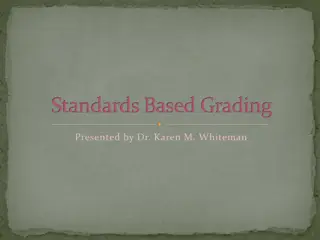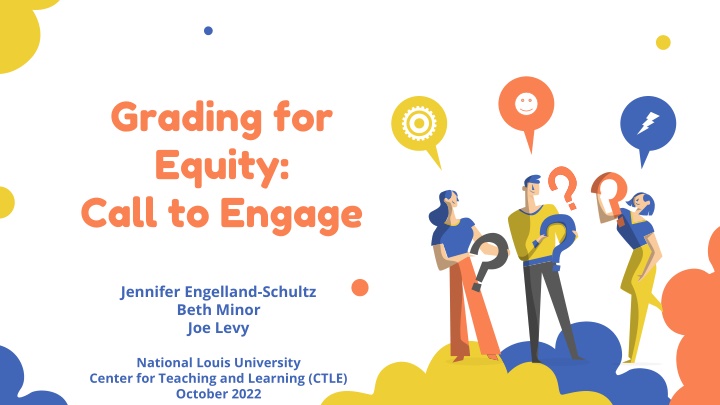
Grading for Equity Call to Engage
The importance of equitable grading practices and ways to enhance outcomes through critical evaluation. Discover insights on current grading practices and the pillars of grading for equity. Get inspired to transform assessment in educational settings.
Download Presentation

Please find below an Image/Link to download the presentation.
The content on the website is provided AS IS for your information and personal use only. It may not be sold, licensed, or shared on other websites without obtaining consent from the author. If you encounter any issues during the download, it is possible that the publisher has removed the file from their server.
You are allowed to download the files provided on this website for personal or commercial use, subject to the condition that they are used lawfully. All files are the property of their respective owners.
The content on the website is provided AS IS for your information and personal use only. It may not be sold, licensed, or shared on other websites without obtaining consent from the author.
E N D
Presentation Transcript
Grading for Equity: Call to Engage Jennifer Engelland-Schultz Beth Minor Joe Levy National Louis University Center for Teaching and Learning (CTLE) October 2022
Learning Outcomes 1 Critique Current grading practices using an equity lens 2 Identify Opportunities to change grading practices to increase equitable outcomes
Grading for Equity What is Our Why?
What are Our Current Grading Practices? Survey
What are Our Current Grading Practices? Recommended Grading Practice No 0-100% grading scale Yes Minimum grading floors No Group grades No Late work penalties No Extra credit No Participation points Yes Retakes and resubmissions Yes Rubrics No Rounding up to the next letter grade Yes Student feedback on assessment and grading
Assessment & Grading Assessment can be used to solve inequalities or perpetuate them (Montenegro & Henning, 2022, Ch. 1) Equity gaps are a problem with the institute not the student (Singer- Freeman et al., 2022, Ch. 6) We can leverage assessment to advance equity (Heiser & Levy, 2022, Ch. 13) Socially Just Assessment is a transformative approach to dismantle systems of power and oppression (Baker & Henning, 2022, Ch. 4) We need equitable assessment and grading practices
Grading for Equity Grading for Equity: What It Is, Why It Matters, How It Transforms Schools and Classrooms Mark Boswell and Joe Feldman, 2019 NAIS People of Color Conference workshop presenters, talk about how traditional grading practices can harm students and perpetuate achievement and opportunity gaps. They also explore how independent schools can adopt more equitable grading practices that are accurate, bias-resistant, and motivational. Boswell and Feldman presented the workshop "Grading for Equity: What It Is, Why It Matters, How It Transforms Schools and Classrooms." Schools and titles listed in the video are as of the time of the interview.
The Three Pillars of Grading for Equity 1) Accurate 2) Bias-Resistant 3) Motivational
1) Accurate Grading Practices *Grading Scales *Zeros and Minimum Grading *Individual Grades *Completion vs. Accuracy Our Experiences *What do you do? Equity Recommendations *How do these practices affect our students?
0-100% Grading Scale - Is it fair? Photo Credit: Center for Assessment
0-4 Grading Scale - Is it fair? Photo Credit: CCSD Clark County School District
2) Bias-Resistant Grading Practices *Late Work *Participation Points *Extra Credit Our Experiences *What do you do? Equity Recommendations *How do these practices affect our students?
3) Motivational Grading Practices *Retakes *Rubrics *Student Support *Student Voice Our Experiences *What do you do? Equity Recommendations *How do these practices affect our students?
Student Voice in Grading Photo Credit: ajeforum.com
NLU Seed Grant: Grading for Equity 1. What are our current grading policies? 2. What are our actual grading practices? 3. Do students current grades show equitable outcomes? 4. What should we be doing for grading policies and practices? 5. How do changes in grading practices and policies affect the equity of student outcomes?
Joe Feldmans Grading for Equity
What are Our Next Steps for Grading Practices? Survey
Check & Connect Grading for Equity Beth Minor Website Website eminor1@nl.edu Thank You!!! Jennifer Engelland- Joe Levy Schultz Jengelland-schultz@nl.edu jlevy2@nl.edu

